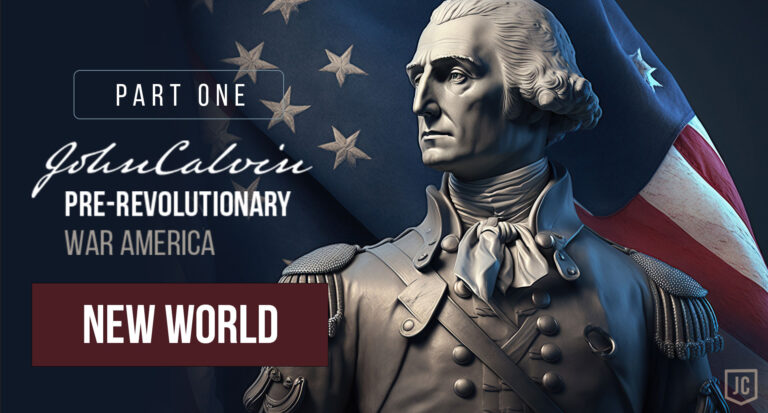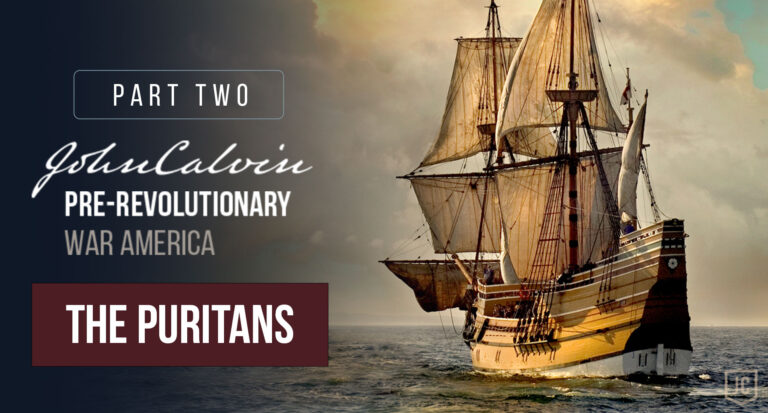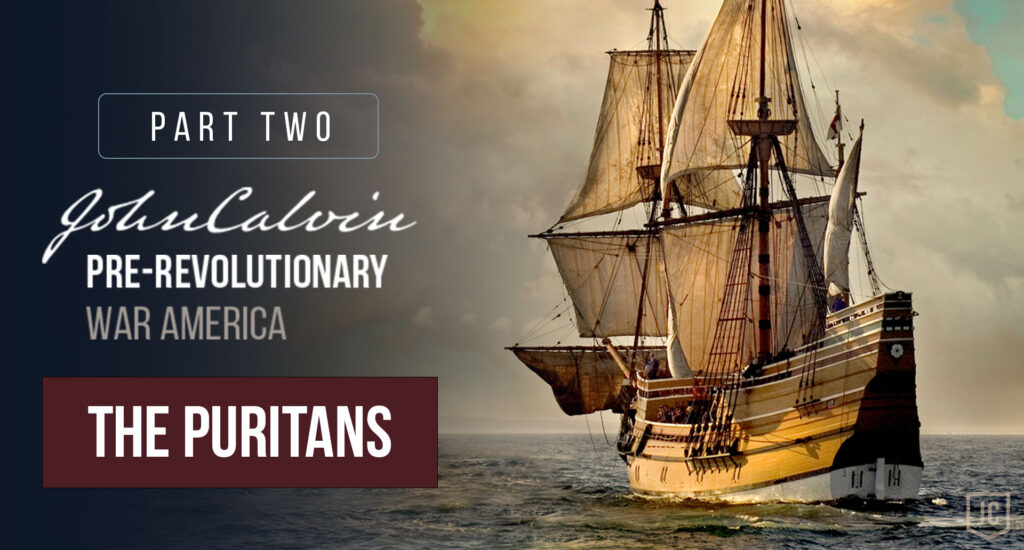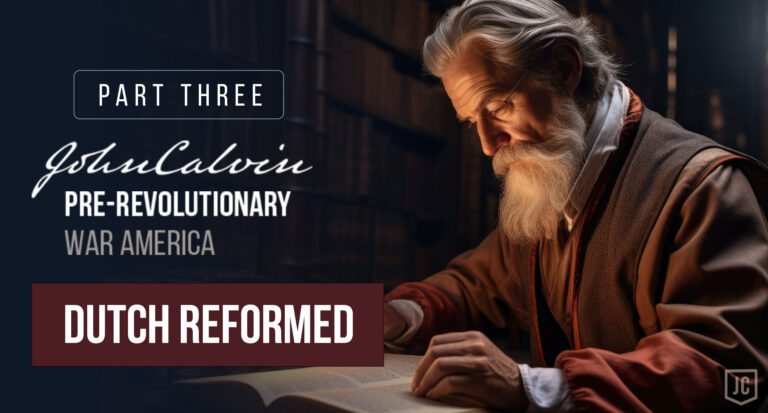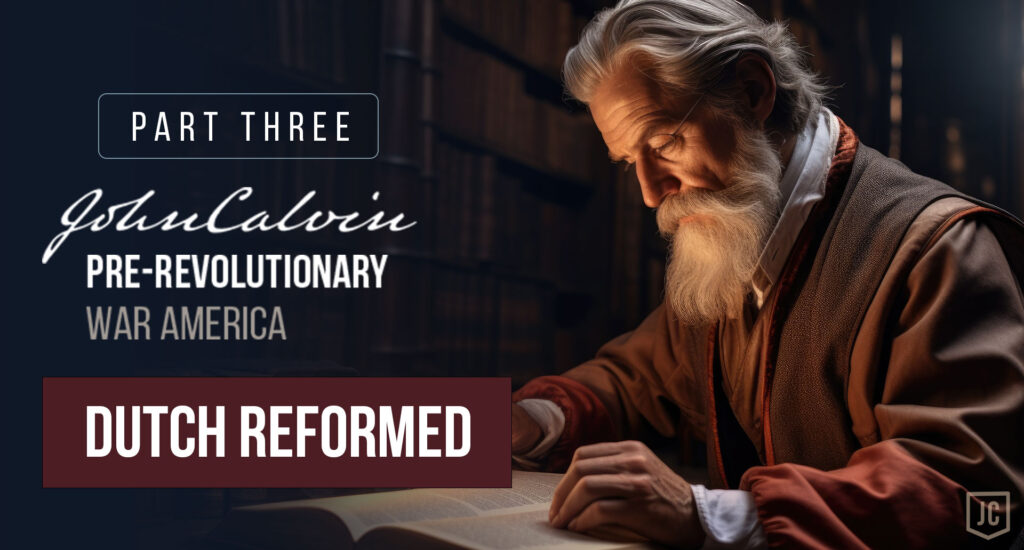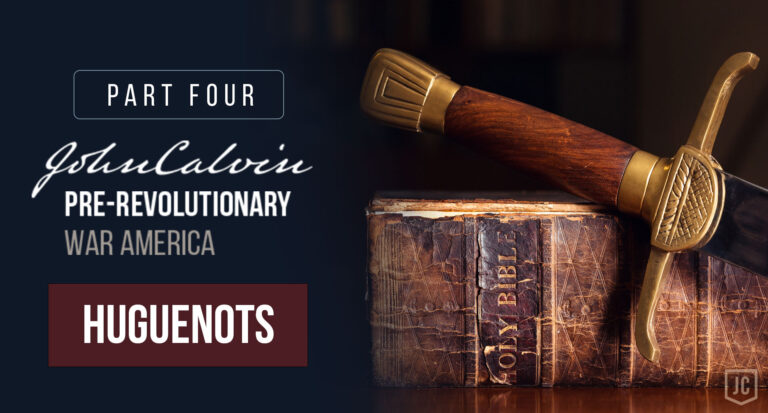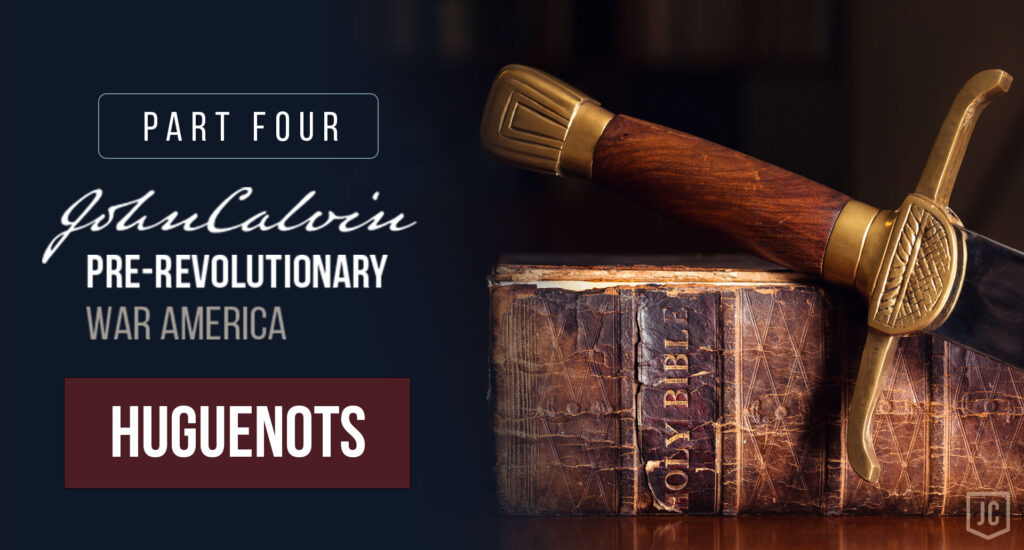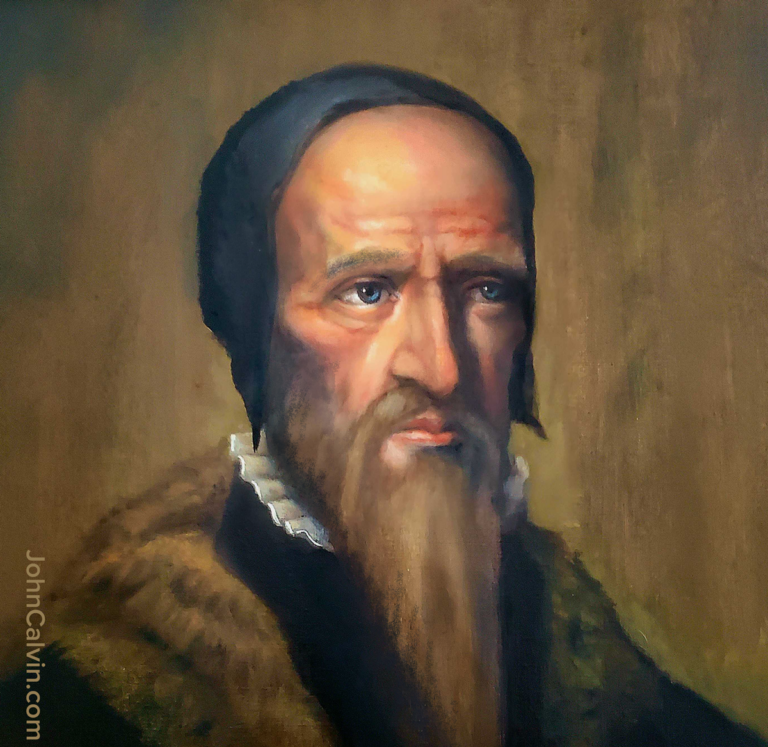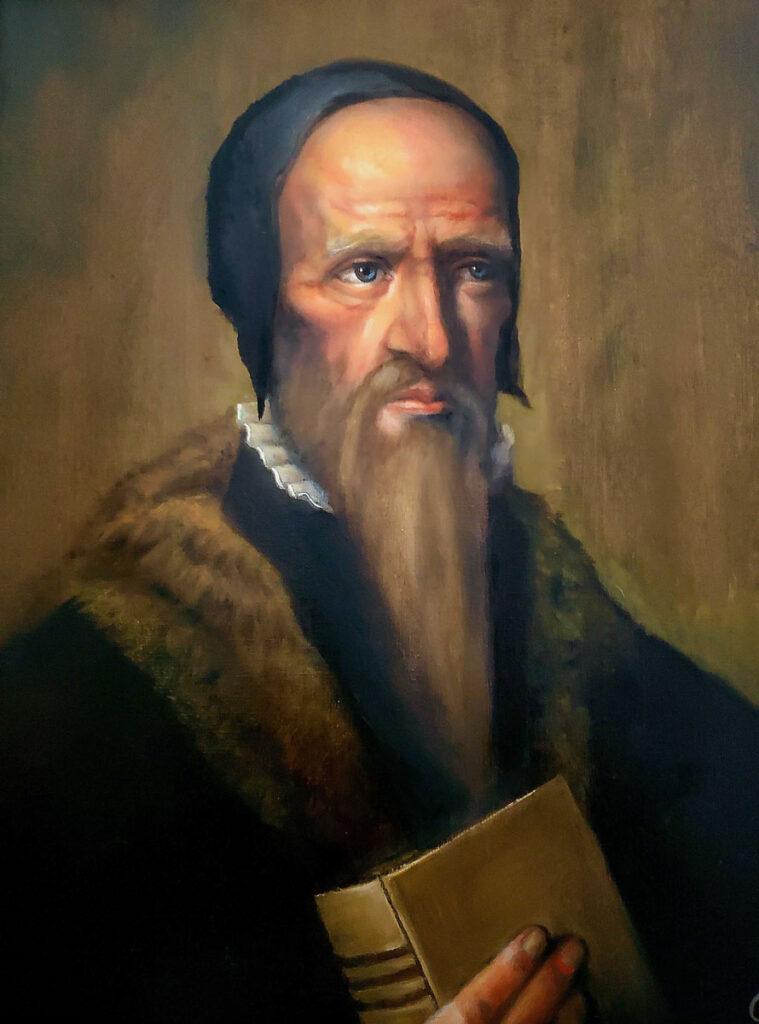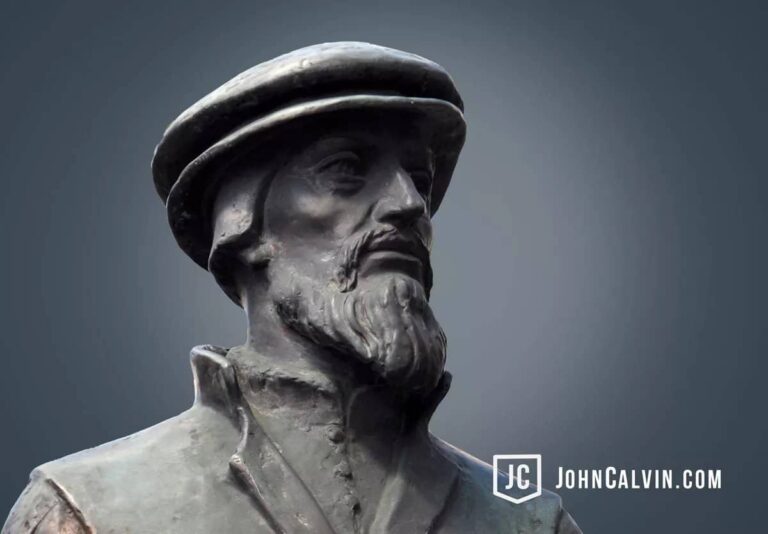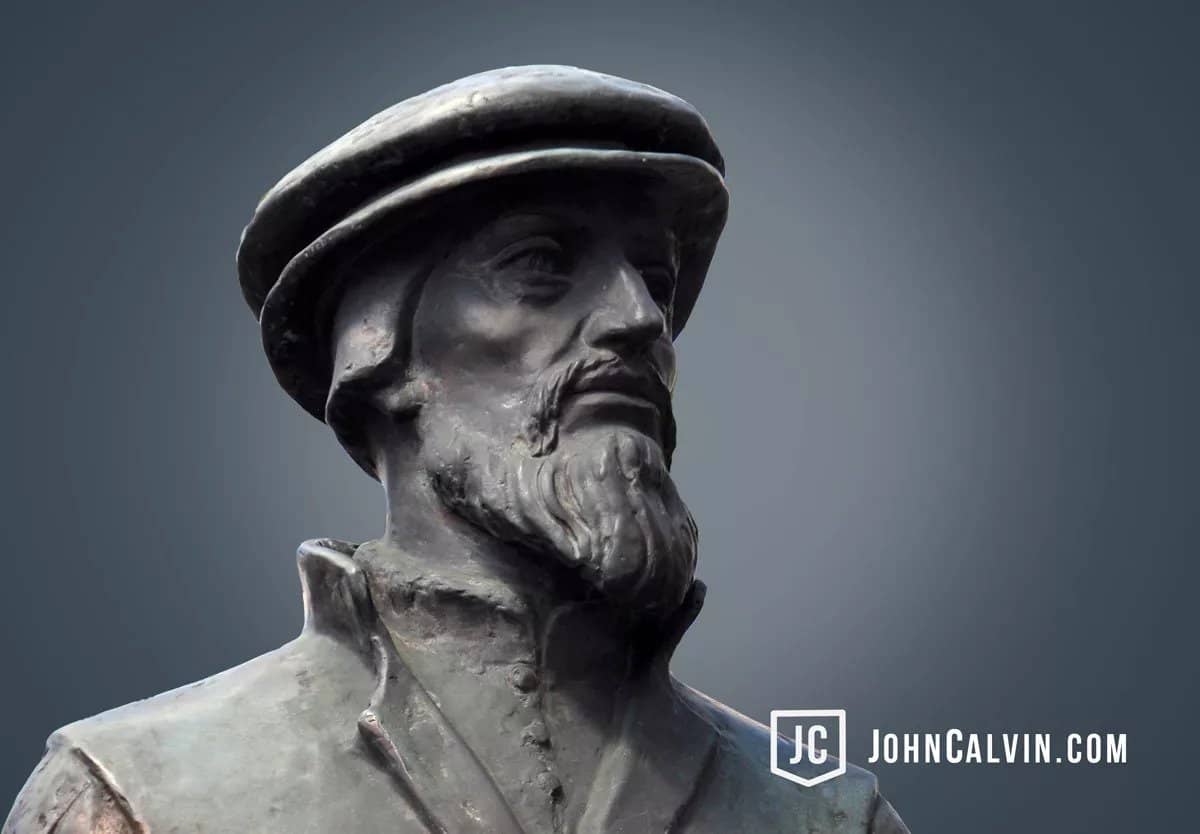John Calvin and Pre-Revolutionary War America
– Part 1 New World
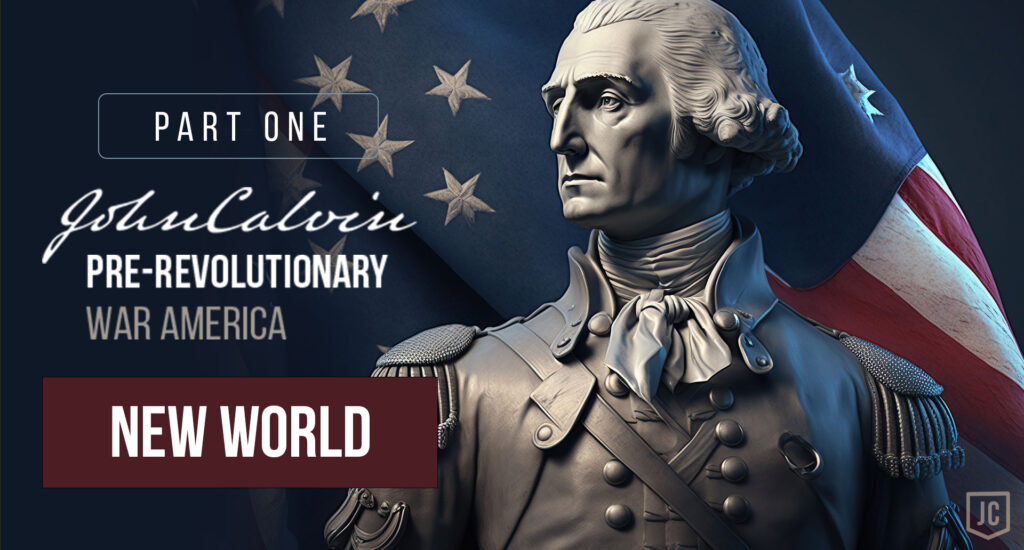
John Calvin in Pre-Revolutionary War America
In the tumultuous era leading up to the American Revolution, the religious landscape of the thirteen colonies played a significant role in shaping the course of history. Amidst a diverse array of beliefs and practices, John Calvin’s teachings emerged as a dominant theological framework that profoundly influenced early America’s social, political, and cultural fabric.
This may sound quite astonishing, as John Calvin lived and died almost a century before the American Colonies even existed. But the men and women Calvin taught and influenced during his time impacted many of the people who ended up in the United States, to the point where eventually, Calvinism held a firm grip on the hearts and minds of many colonists.
Calvin’s core teachings, collectively known as Reformed theology, emphasized the sovereignty of God, the fallen nature of humanity, and the concept of predestination. These theological principles resonated deeply with believers, providing a sense of order and purpose in a world that often seemed unpredictable and uncertain.
This four-part series explores the impact of Calvinism on three distinct regions: the Puritans in Massachusetts, the Dutch Reformed in New York, and the Huguenots in North Carolina. Before delving into the specific contexts of these areas, it is crucial to first understand the overarching power and significance of Calvinism in pre-Revolutionary War America.
Geneva: The Birthplace of a Nation
Believe it or not, Calvin’s influence in America began in Geneva, a little town in Switzerland. Geneva, renowned for Calvin’s academy, became a center for educating individuals in the Reformed faith. Many Reformers admired Calvin’s work in this town, including the great Scotsman John Knox, who called Calvin’s academy the “most perfect school of Christ.” Indeed, Calvin’s institution attracted students from various parts of Europe, disseminating his teachings far and wide.
During the 1550s, Geneva became a refuge for religious refugees escaping persecution in England, France, Italy, and Scotland. Calvin welcomed these refugees and provided them with education and training in Geneva before they returned to their homelands. In Geneva, these refugees also experienced an entire society built on the teachings of Scripture. This practice offered solace to the displaced and facilitated the spread of Calvinism across Europe when they returned home with what they had learned. This ignited a movement that would eventually reach the shores of America.
The transplantation of European churches and religious institutions to North America in the 16th century further solidified the influence of Calvinism. Although, Spanish and French Roman Catholics were among the earliest settlers in America, it was the influx of Dutch, English, Scottish, and German colonists, with their diverse Protestant backgrounds, which accelerated the growth of Calvinism in the New World.
The expansion of Calvinist denominations in North America can be attributed to the unique circumstances under which Protestantism emerged in Europe, the support of various civil governments for established Protestant churches, and the involvement of business sponsors who saw the Christian ministry as integral to their colonial designs.
The seeds of American Calvinism were sown, nurtured by the teachings of John Calvin
in Geneva, and brought across the Atlantic by religious refugees and settlers. And really, to understand Colonial America, you have to understand what Calvin did in Geneva. As, the influence of Calvinism would leave an undisputed mark on the religious, social, and political landscape of pre-Revolutionary War America.
More Than Theology: John Calvin’s Influence in America
The impact of Calvinism extended far beyond individual religious practice. It affected the social and political structures of the colonies, shaping their laws, institutions, and communal identities.
The Calvinist notion of a “covenant community” guided the formation of tight-knit communities, where adherence to moral and religious codes was seen as essential for the well-being of society as a whole.
Economics:
Calvin’s theology of work challenged the prevailing notion that religious service was limited to the clergy. Calvin emphasized the idea that individuals could serve God through their vocations as merchants, manufacturers, or farmers. This perspective, along with his belief in Christian liberty and the freedom of conscience, provided moral and intellectual support for economic endeavors.
Calvin’s justification of property rights further encouraged economic success. Many economic policies we recognize today as supporting “free markets” or “classical liberalism” have their roots in Calvin and his followers.
Politics:
Calvin’s influence extended to the realm of politics as well. Calvin’s teachings, emphasizing predestination and God’s sovereignty, influenced colonial charters, local governments, and the establishment of laws based on biblical principles.
In fact, many historians have drawn a connection between Calvin’s successors, the Puritans, and the American creed, a collection of legal and political ideals associated with American constitutionalism. These Calvinist ideals also played a pivotal role in the development of American political thought, inspiring a sense of moral duty and the quest for individual rights.
Cultural Values:
Calvin’s emphasis on moral discipline, personal responsibility, and the pursuit of a righteous life resonated with the early Colonists, shaping their values and practices. The influence of Calvinism on the development of American national identity can be seen in the enduring cultural values associated with Protestantism, such as a strong work ethic, individualism, self-reliance, and the belief in predestination. These values, rooted in Calvinist theology, shaped the way early American settlers approached their work, personal responsibility, and the idea of success.
Overall, the influence of Calvin can be seen all the way to today in economic policies supporting free markets, the development of the American Constitution, and the formation of cultural values. However, it is crucial to recognize the diversity of perspectives within the Calvinist tradition, which has contributed to ongoing debates over religion, identity, and national ideals in America.
Additionally, it is important to note that impact of Calvinism extends beyond institutional structures, as many influential individuals were shaped by Calvinism like George Whitfield and John Winthrop. These individuals also played a significant role in shaping American society and politics.
The Focus of Our Series
As mentioned earlier, we hope to explore three major geographical areas where Calvin’s influence took an early foothold.
The Influence of Calvinism on the Puritans in Massachusetts
In the first part of this series, we will explore the influence of Calvinism on the Puritans in Massachusetts. The Puritans, seeking to establish a pure and holy society, arrived on the shores of New England in the early seventeenth century, driven by a deep commitment to Calvinist ideals.
Fleeing religious persecution in England, the Puritans crossed the Atlantic and established the settlements of New England, Plymouth, and the Massachusetts Bay Colony. With their localized conceptions of social order, the Puritans implemented strict adherence to religious practices and moral codes, profoundly impacting the formation of Massachusetts as a godly society like Geneva.
The Dutch Reformed Community in New York
The second part of the series will examine the Dutch Reformed community in New York. Thanks to the exploration of Henry Hudson under the patronage of the Dutch West India Company, Dutch colonists began to settle in the territory known as New Netherlands (aka New York).
Here they established outposts and forts to facilitate commercial enterprises. While religion was not the primary reason for establishing settlements, the directors of the trading company were devout, and they expected the inhabitants to conform to Protestant norms.
The Dutch Reformed Church played a central role in shaping the religious, economic, and cultural landscape of New York, leaving an indelible mark on its development. The Dutch Calvinists brought their traditions and institutions to the region, contributing to the growth of the vibrant trading hub.
The Influence of Calvinism on the Huguenot Community in North Carolina
Finally, the third part will explore the influence of Calvinism on the Huguenot community in North Carolina. Amidst the religious violence in France, French Huguenots sought refuge from persecution and settled in this southern region. The Huguenots infused their Calvinist beliefs with the area’s distinct social and cultural traditions.
While small numbers of French Protestants found safety in England’s mainland American colonies, only two independent Huguenot congregations, in New York City and Charleston, existed by the time of the American Revolution. The Huguenots’ contributions significantly shaped the religious and social fabric of colonial North Carolina.
Conclusion
Throughout this series, we will dive into the unique characteristics, challenges, and contributions of each Calvinist community, shedding light on their historical significance within the broader narrative of pre-Revolutionary War America.
By examining the multifaceted influence of Calvinism, including the less well-known German Protestants and the Dutch and French Calvinists, we can better understand how religious beliefs shaped the colonies’ development and laid the groundwork for the revolutionary spirit that would eventually drive the quest for independence.
It would be impossible to understand John Calvin’s life without understanding his incredible and lasting legacy in the United States before, during, and after its founding. So, join us on this journey through the Calvinist landscape of pre-Revolutionary War America as we explore the enduring heritage of a theological tradition that left its mark on the birth of a nation.
